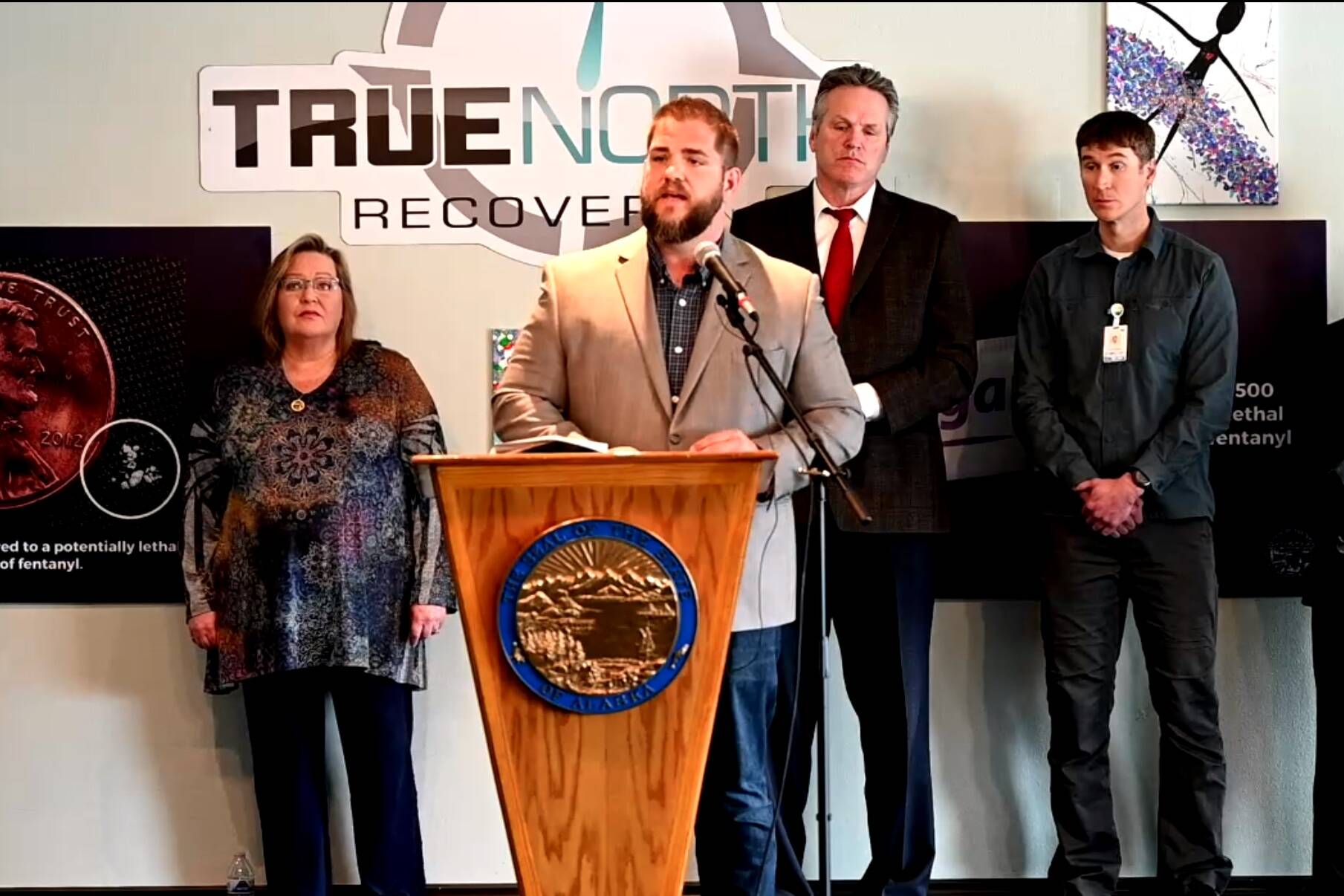Gov. Mike Dunleavy announced fentanyl dealers would be punished to the fullest extent of the law Tuesday, including possible manslaughter charges if a buyer dies from an overdose after ingesting a drug containing fentanyl.
In a news conference in Anchorage alongside Department of Health and Social Services Commissioner Adam Crum and Department of Public Safety Commissioner James Cockrell, Dunleavy said the state is taking additional steps to curb the amount of fentanyl coming to Alaska.
“We’re going to increase our addiction intervention,” Dunleavy said. “We’re going to let the drug dealers know that they’re going to pay the price, we’re going to make sure that we’re prosecuting people to the fullest extent of the law.”
The governor suggested passing legislation that would change charges resulting from the death of a buyer from manslaughter to 2nd-degree murder.
Last week, state law enforcement officials seized more than $356,000 worth of illegal narcotics in Southeast and Southcentral Alaska, the governor said. On April 26, the Juneau Police Department arrested a couple at the Juneau International Airport carrying more than $22,000 in illegal drugs, including eight grams of fentanyl.
The number of overdose deaths in Alaska increased by 71% from 2020 to 2021, according to Crum, who said that 75% of those cases involved fentanyl. Crum said Anchorage had the highest rates of overdoses, followed by Ketchikan and then Juneau.
“The lethality of this drug changed the whole board,” Crum said.
Fentanyl, a synthetic opioid drug typically used for end-of-life care, is increasingly being mixed with other drugs in powder or pill form, according to the U.S. Drug Enforcement Agency, and is driving a nationwide epidemic. According to the Centers for Disease Control and Prevention, in the 12-months leading up to October 2021, more than 105,000 Americans died of drug overdose deaths, with 66% of those deaths related to synthetic opioids.
Sandy Snodgrass, a mother who lost her son Robert to a fentanyl overdose in 2021, became an advocate for addiction awareness and spoke at the conference.
“I’m advocating for education and awareness for other Alaskans, so they do not have to attempt to survive the loss of a child due to a fentanyl poisoning,” Snodgrass said.
The state of Alaska issued a disaster declaration for the opioid crisis in 2018, and has had addiction and recovery programs for years. Speaking from the True North Recover Inc. treatment center in Wasilla, Dunleavy said the state would seek to expand access to treatment programs.
“There are avenues for you to get help and we’re going to work on more avenues for you to get help,” Dunleavy said.
True North executive director Karl Soderstrom, who is in long-term recovery from addiction, said at the conference the demand for recovery services had grown significantly. He emphatically said there is hope for anyone suffering from addiction.
The state will be expanding access to the emergency drug, Narcan, a nasal spray that can prevent death in the event of an overdose. The state’s Project HOPE distributes free Narcan kits, and Crum said at the conference everyone should carry one.
Dunleavy was also critical of the Biden administration’s policies regarding the U.S.-Mexico border, and said relaxed enforcement was leading to a surge in fentanyl coming from Mexico. Dunleavy recently joined 25 other Republican governors in an effort led by Arizona Gov. Doug Ducey and Texas Gov. Gregg Abbott, both Republicans, to form the American Governor’s Border Strike Force.
“The unprecedented collaboration among 26 states will fill the void created by federal inaction and work to secure the southern border by sharing intelligence, strengthening cybersecurity and improving efforts to protect children and families,” a statement from Ducey’s office said.
According to Crum, the state would also increase access to Medically Assisted Treatment such as methadone to help opioid addicts stop using illicit drugs.
Contact reporter Peter Segall at psegall@juneauempire.com. Follow him on Twitter at @SegallJnuEmpire.


